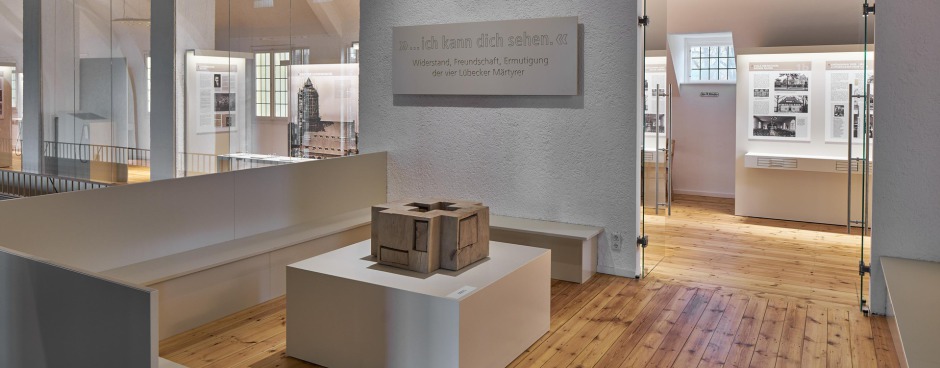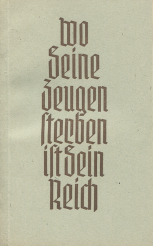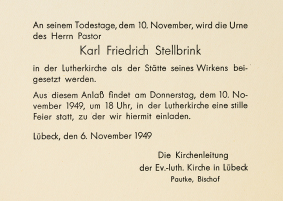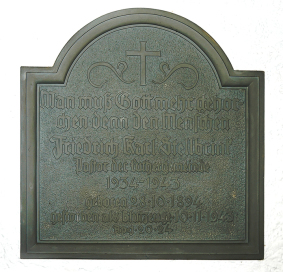With the imprisonment of Karl Friedrich Stellbrink, the Luther congregation is without a pastor of its own and is provisioned for in a poor way by other Lübeck clergymen. The Stellbrink family is
allowed to stay in the parsonage but must remain silent about the fate of the father and husband.
After the war there are two new pastors: The clergymen Gerhard Gülzow and Georg Pautzke came to Lübeck as refugees from the East — as did many new church members. The parish council of the Luther
congregation, however, continues to exist in the same form as it did during the Nazi period. A critical examination of the past and the fate of pastor Stellbrink only takes place at a regional church
level. The people in the district and in the congregation have to cope with the daily struggle for survival.
In the Sacred Heart of Jesus congregation, on the other hand, the honourable remembrance of the executed has been of great importance from the very beginning. The fact that together with the clergy
18 laities of the Catholic community had been imprisoned certainly had a large share in this. Masses are regularly celebrated at the hour of death on 10 November. The memory of the Protestant pastor
Stellbrink is part of the commemoration, and his family is invited to events.
In the Luther Church, there are smaller commemorations in the 1950s and 1960s to mark the anniversary of his death, which are often linked to the commemoration of Luther’s birthday on
10 November.
A large ecumenical service is celebrated in 1963 in St. Catherine’s Church, and in November 1968 an ecumenical service is held in St. Mary’s Church.





